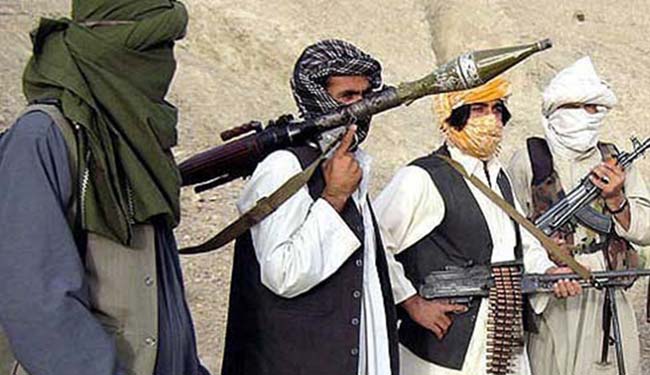Succeeding Mullah Akhtar Mansour, who was killed in a US drone strike in Balochistan last month, Mullah Haibatullah signaled to intensify Omari Operation through staging systematic attacks in Afghanistan. His inconvincible policy has prompted al-Qaeda leader Ayman al-Zawahri to swear allegiance to him. “As leader of the al Qaeda organization for jihad, I extend my pledge of allegiance once again, the approach of Osama to invite the Muslim nation to support the Islamic Emirate,” Zawahri is cited as saying.
Moreover, Maulvi Ahmad Rabbani, who heads a group of clerics, had not sworn allegiance to Mullah Mansoor, also pledged loyalty to Haibatullah. He was quick to endorse Haibatullah. “Sheikh Hibatullah Akhunzada had no personal interest in becoming the Taliban emir, and only accepted the role after a decision by the Supreme Council and other elders. We, the fellow clerics, pledge our allegiance to him,” Maulvi Ahmad Rabbani said in a statement on May 30.
It seems that Haibatullah, who is known for his harsh verdicts as a judge in Kandahar during Mullah Omar’s regime, carries more weight among the Taliban fighters and ideologues than his predecessor Mullah Mansour. Contrary to many analysts’ beliefs, he was appointed quickly without being opposed by the Taliban’s heads. Since he is a fundamental cleric, al-Qaeda’s leader will support him in terrorist acts and strengthen Omari Operation, mainly in Afghanistan. Al-Qaeda’s allegiance to the Taliban has not been an unprecedented move in the history of Afghan insurgency as the two groups have routinely cooperated with each other in their attempt to target Afghan and foreign troops in the country. They operate under the same ideology and seek to carry out “jihad” against Afghan and US troops. In other words, both put the legitimacy of Afghan democratic government under question and, therefore, hold out to sit around the negotiating table – despite the fact that Afghan government called warring factions frequently to join peace process.
In many of my commentaries regarding peace talks, I never expressed hope over a fruitful talk with the Taliban elements. The Taliban played the game wisely especially during the Afghan former President Hamid Karzai, though, as a result, the head of Afghan High Peace Council, Professor Burhanuddin Rabbani, was assassinated on September 20, 2011, by two men posing as Taliban representatives. The suicide bomber claimed to be a Taliban commander and said he wanted to “discuss peace” with Professor Rabbani. Four other members of HPC also lost their lives in the blast. It was only the tip of the iceberg. A number of the Taliban dangerous prisoners were released under the term of peace talks, however, neither militancy was mitigated nor the generous acts of Karzai’s administration helped peace process. Now, the question is that what mechanism should the government adopt to bring in peace?
To consider the unmitigated militancy and rising civilian mortalities, staging heavy offensives against peacemakers, carrying out suicide attacks in crowded places regardless of women and children’s life, what strategy will come to fruition? You will get the answer shortly.
To consider Pakistan’s role concerning negotiation, Afghan-Pak relation has been unstable and left many ups and downs behind. Their verbal dispute reached climax after the deadly attack carried out by the Taliban in Shah Shaheed on August 07, 2015. Afghan President Muhammad Ashraf used serious tone about Pakistan following the incident. He said, “Pakistan still remains the venue and ground for gatherings from which mercenaries send us a message of war.” He added that the time Pakistan Prime minister Nawaz Sharif said the enemies of Afghanistan are the enemies of Pakistan, “now the time has come for him to prove it.”
Hence, the gap between Kabul and Islamabad will be hardly bridged, especially after the recent exchanges of fire between the Afghan-Pak police on the border. Similarly, the QCG, which consists of Afghanistan, Pakistan, China and the US, has also met failure after the death of Mullah Mansour, which widened the rift.
As a backlash to the Taliban’s heavy offensives, the US President Barack Obama has announced a broader role for American forces in Afghanistan and, based on the new plan, the current level of US forces will not change in Afghanistan. Obama also authorized the American troops to help their Afghan counterparts on the war fronts.
There are indications that the tug of war will continue in Afghanistan and the government will also respond in the same way as the insurgents. In another item, strengthening military strategy is the only solution to counter insurgency – the government also seems to have reached this conclusion. Therefore, it has increased attacks in recent months. The government’s serious strategy towards the Taliban fighters is tangible to the public as six members of the Taliban prisoners were hanged last month under the President’s decree.
Home » Opinion » The Tug of War will Continue
The Tug of War will Continue
| Hujjatullah Zia

